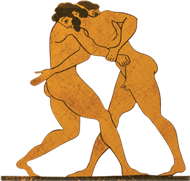
Classical Greece
1.500 B.C. CLASSICAL GREECE
A CURRENCY CALLED OLIVE OIL
In the XVI century B.C., the Phoenicians began to disseminate the cultivation of olive trees among the Greek islands. We must stress that it entailed systematic cultivation methods and not just the exploitation of wild olive trees that had occurred till then. After this period (between 1,400 and 1,200 B.C.), the cultivation of olive trees reached mainland Greece. Around 1,050 B.C., the same Phoenicians took this method to Spain, today the greatest olive oil producer in the world. Navigators and merchants of recognized competence, maintaining constant trade with North Africa, which, in that period, was a producer of olive oil, the Phoenicians certainly formed a bridge between the olive tree plantations in the regions to the south of Carthage, Madauros and Cuicul in Africa and the Bética region in Hispania, giving rise to one of the most important and oldest agricultural traditions in history.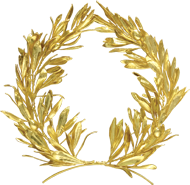
A COVETED SYMBOL
Due to their legendary, almost divine, power, olive trees marked Greek social life in an enduring manner. One remarkable example is that manifested in the very First Olympic Games, which took place in 776 B.C.. The prize for champions was an olive branch, symbolizing peace and friendship among the competitors.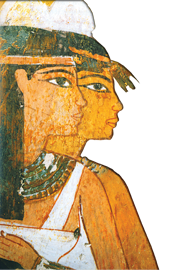
THE CULT OF BEAUTY
Egyptian and Greek high society ladies readily assimilated the cult of beauty and personal care using different aromatized olive oils for every part of the body. As olive oil does not leave a fat deposit on the skin, the noble ladies used benzoim gum in their armpits, sandalwood on their necks, patchouli on their breasts, even reaching more exciting parts, or, indeed, wherever imagination took them.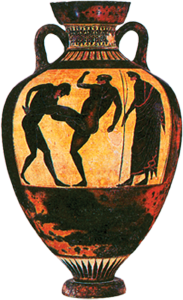
PRODUCT AND MONEY
Another fact that demonstrates the great importance attributed to olive oil was the prizes awarded to winners in the Panathenaic Games, which used to take place every four years in Athens, in honour of the goddess, Palas Athena. In these Games, the winners used to win amphoras full of olive oil, called Panathenaic Amphoras. Certainly this was the first case of product certification in the history of world trade.However, as interesting as this veritable case of marketing, were the immense quantities of olive oil provided. To give an idea, depending on the sport, the winner could win up to 5 tons. Even better, although the legislation in Athens prevented exportation of olive oil, it granted this power to winners in the Panathenaic Games. Thus, it is easy to imagine how rich these athletes could become.
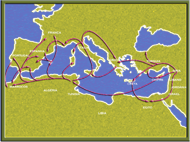
OLIVE OIL SPREADS ALONG MEDITERRANEAN SHORES
As of the VI century B.C., the cultivation of olive trees spread via the countries along the Mediterranean coast, reaching Tripoli in Tunisia, Sicily, where the incontestable proof is the hundreds of millenary trees, and on to mainland Italy. Olive oil was present in the Greek baths, probably for moments of relaxation and massage. It was present in the practice of sports, such as a balsam, ointment, epidermic tonic, and, for the first time, in Greeces classical period, it was proven to be present in food too. So intense was the use of olive oil that in the periods of low production, the Greeks would import it from what would become todays Marseilles Provence, and from Bética, todays Andalusia, which, for the record, is the largest olive oil producing region in the world.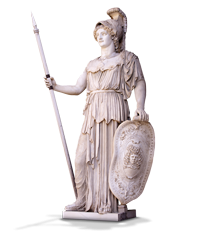
GREEK MYTHOLOGY
At the beginning of time, Zeus, the supreme god among all the Greek deity, set a challenge for Poseidon, the powerful god of the seas and the beautiful Palas Athena, goddess protector of the arts and sciences: he who would give to men the gift of greatest usefulness, would have total control over all the lands of Attica. Poseidon, with great physical vigour, drove his trident into the soil, and a beautiful refreshing lake appeared. Palas Athena, in turn, planted her lance, whereupon a leafy olive tree emerged.The council of the gods of Olympus placed itself in judgment regarding the two marvellous gifts offered by these two gods to the mortals. On the one hand, there would a refreshing atmosphere, an abundance of fish and the thirst of many men would be satiated. On the other, a tree whose fruits would generate fuel to illuminate the nights for centuries to come, a balsam for lesions, a powerful medicine for various ailments that afflict mankind, a food rich in vitamins and flavours. There was no doubt about the grandeur of the goddesss creation. Due that gesture, Palas Athena became the lady of Attica. In her honour, the most important city of the region received the name, Athens, afert all, humanity had gained one of the most miraculous gifts the divinities could ever provide. Thus, there began legends about man and olive oil.
